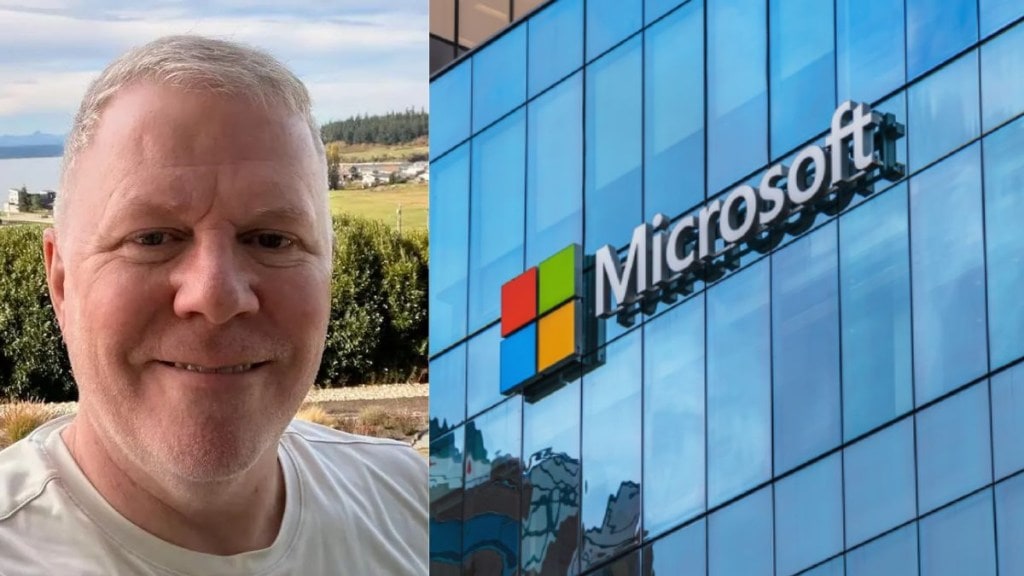For more than twenty years, Joe Friend’s career was intertwined with one of the most powerful companies in the world. Microsoft had been the setting for his biggest professional milestones, and until recently, he thought it would also be the place where he finished his career on his own terms.
That plan dissolved in May 2025. Friend, a seasoned product management director who oversaw a team of nine, learned that his position, along with those of 14 colleagues was being eliminated.
The news landed like a gut punch, even though he had heard whispers about a management restructuring months earlier.
“I wasn’t entirely surprised by the layoffs. I was surprised to get caught up in them,” said Friend to Business Insider
The timing stung. Friend had carefully mapped out a path to stay at Microsoft until 65, the age when most of his stock grants would continue to vest even after leaving. That milestone was meant to bridge him into a comfortable, self-directed next chapter. Instead, the decision arrived abruptly.
“My plan was to figure out what I wanted to do over the next three years,” he said. “Then all of a sudden I’m at the doorstep, and I have to make that decision now.”
Three careers in one company
Friend’s story is unusual, not because he was laid off, but because of how deeply his career narrative has been intertwined with Microsoft’s evolution. He first joined the company in 1994, helping to shape early versions of Microsoft Word. Then, just as his career was gaining momentum, he walked away.
His departure was not about burnout or corporate politics; it was about purpose. He and his family moved to Indonesia, where he spent more than six years with an international NGO. That experience, he says, fulfilled a long-held dream to live abroad and do work that mattered beyond quarterly results.
When he returned to the US in 2003, the nonprofit path seemed less sustainable. He gravitated back to the tech world and back to Microsoft where he stayed for 14 more years. By 2017, however, he felt the need for change again.
“I finally realised that I didn’t want to work at another big company,” he recalled to Business Insider.
He joined Stack Overflow, drawn by the smaller scale and developer-focused culture. But when a former colleague requested him to return to Microsoft in 2018, he hesitated but then reconsidered. The company, he believed, had gone through a meaningful transformation under new leadership.
“I was really impressed with what I saw as significant cultural change at the company and agreed to go back,” he said to Business Insider.
That optimism lasted until this spring. When the layoff notice came, it was both familiar and foreign: Microsoft had changed again, and this time, he no longer saw a place for himself there.
“It feels like a betrayal, and it impacts me financially, but it’s not going to hurt,” he explained to Business Insider.
The severance softened the blow: a lump sum nearly equivalent to what he would have earned for the rest of the year and his finances were stable. But emotionally, the shift carried a heavier weight.
Life of a ‘semi-retired’ person
Rather than rushing back into the job market, Friend took time to breathe. He met with a financial advisor, tested the numbers on an early retirement, and explored a few job leads. But what emerged was not a new corporate role, it was a slower, more personal chapter.
These days, he describes himself as “semi-retired.” He spends much of his time mentoring a young entrepreneur and helping build a small business.
“It’s not about making money,” he said to Business Insider. “It’s about supporting somebody who wants to transform their life.”
Friend says he could retire fully if he wanted to, but he is not ready to close the door on work entirely. What he is ready to close the door on, though, is Big Tech.
He believes the industry has changed that the unspoken understanding between company and employee has frayed. “If you performed well, you’d be rewarded financially and enjoy job stability,” he said to Business Insider, describing what once felt like an implicit contract at Microsoft. “I don’t think that’s true anymore.”
As he looks ahead, his priorities have shifted. Prestige, salary, and title have given way to a search for purpose and connection.
“I think I’d rather earn $50,000 a year doing something I’m excited about,” he said to Business Insider, “It doesn’t mean I won’t jump back into a job, but it certainly won’t be Big Tech.”

